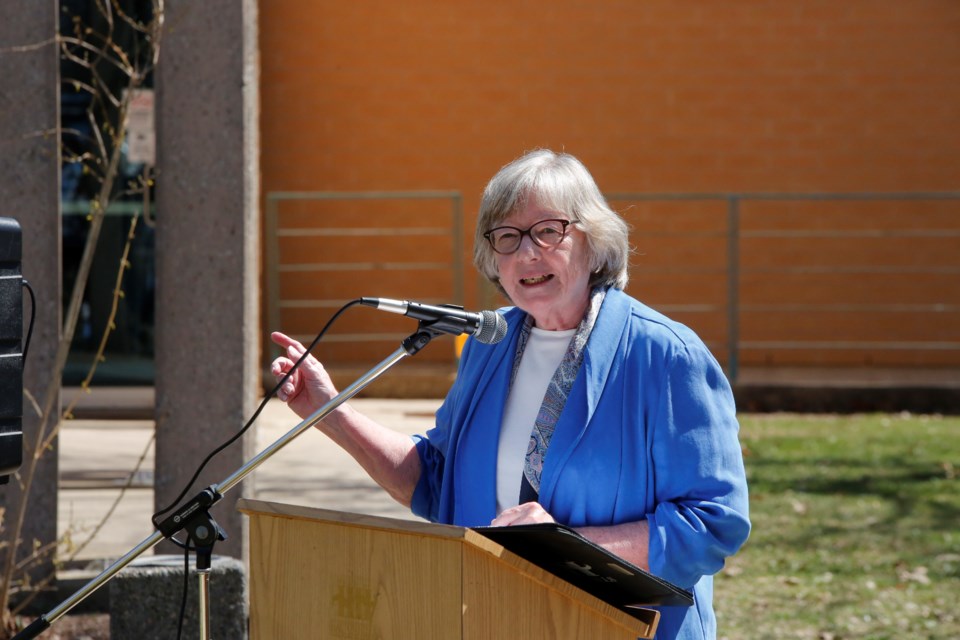In the wake of Premier Doug Ford extending new strong mayor powers to Halton Hills, Mayor Ann Lawlor assured the public and fellow council colleagues that the new tools are unnecessary.
"I tend to be a collaborator. When I think about the way our council makes decisions, I think that the status quo is quite effective," Lawlor told HaltonHillsToday. "I don't see the strong mayor powers that the province is providing will particularly be needed in order to achieve the things that the province has said they want."
Ford revealed the move during the Association of Municipalities of Ontario conference earlier this week - a decision that the mayor said was "shocking" for her.
However, several councillors voiced their concerns over the policy, with Councillor Jane Fogal calling it "undemocratic."
"It seems as though it's a way to make mayors do the work of the province. Because it was framed as 'to get the work of the province done, I'm giving strong mayor powers,'" Fogal said.
Rookie Councillor Joseph Racinsky was "not thrilled" with the announcement. He agreed with Fogal's notion that "strong mayor powers are bad for democracy."
The new tools for wielding municipal power would allow mayors to:
- Veto bylaws if they feel that they don't conform to provincial priorities.
- Hire and fire department heads up to and including the Chief Administrative Officer (CAO).
- Create or reorganizing municipal departments.
- Create committees of council and assign their heads.
- Propose the municipal budget, which council would have the ability to amend and veto.
- Bring forward matters for council consideration if the mayor feels it will advance provincial priorities.
"If you can have a mayor bully a CAO because they can fire them, it might not be the direction of council," Councillor Clark Somerville.
"The CAO in Caledon was just fired under the strong mayor [law]. It's hard enough to find competent, great people in there. You don't want it to just be a yes person to the mayor."
The new law promises to allow council to override mayoral vetoes through a two-thirds majority vote.
The oft-repeated priorities of the Ford government include a goal of building 1.5 million homes by 2031. The enhanced abilities are being billed as a way to cut red tape and speed up the building of municipal infrastructure such as transportation and housing.
"This struggle is being felt most by young people and newcomers who are priced out of the dream of home ownership," Premier Ford said at the AMO conference. "Failing to act would worsen the housing supply affordability crisis."
Lawlor and other mayors have until Oct. 15 to opt into the policy, at which time they will be required to express their commitment to the housing targets in writing to the Government of Ontario.
The mayor said she does not know if she will opt in until she reads "the fine print."
She, however, suspects "in principle the pledge is something that we are really being required to do. But I haven't seen any documentation and I don't sign anything without reading it."
The housing target set for Halton Hills is 9,500 homes by 2031, which Lawlor believes can easily be achieved without strong mayor powers.
"Two council terms ago, we started to think about an area that we have identified as Vision Georgetown," Lawlor reminded. "The target at that time, as I have said even several years ago, was for 2031. So the target of 9,500 homes to house about 20,000 people is not far off."
"I'm feeling quite confident that the Town of Halton Hills will be able to achieve the targets that the Ministry of Housing is suggesting."
The Province has created the Building Faster Fund to incentivize municipalities to meet their housing target. Slices of the $1.2-billion pool of cash will be accessible to cities and towns if they meet 80 per cent of their annual targets. Bonuses will be included for those that meet 100 per cent of their yearly goals.
But according to some, it's not enough.
"It's a nice start. But it does not make up for what we lost from Bill 23," Somerville said.
Bill 23 offered discounts on development charges to developers, which the Town estimates would make the municipality lose between $58 million to $78 million.
"There are over 400 municipalities in Ontario. If you do the math, even on the back of a napkin.... $1.2 billion is not much."
